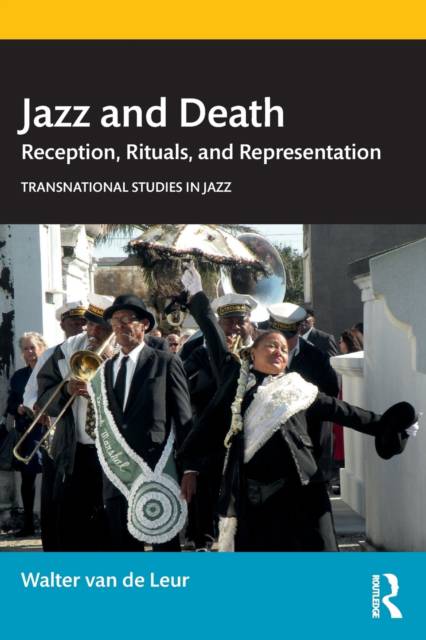
- Retrait gratuit dans votre magasin Club
- 7.000.000 titres dans notre catalogue
- Payer en toute sécurité
- Toujours un magasin près de chez vous
- Retrait gratuit dans votre magasin Club
- 7.000.0000 titres dans notre catalogue
- Payer en toute sécurité
- Toujours un magasin près de chez vous
Description
Jazz and Death: Reception, Rituals, and Representations critically examines the myriad and complex interactions between jazz and death, from the New Orleans "jazz funeral" to jazz in heaven or hell, final recordings, jazz monuments, and the music's own presumed death. It looks at how fans, critics, journalists, historians, writers, the media, and musicians have narrated, mythologized, and relayed those stories. What causes the fascination of the jazz world with its deaths? What does it say about how our culture views jazz and its practitioners? Is jazz somehow a fatal culture?
The narratives surrounding jazz and death cast a light on how the music and its creators are perceived. Stories of jazz musicians typically bring up different tropes, ranging from the tragic, misunderstood genius to the notion that virtuosity somehow comes at a price. Many of these narratives tend to perpetuate the gendered and racialized stereotypes that have been part of jazz's history. In the end, the ideas that encompass jazz and death help audiences find meaning in a complex musical practice and come to grips with the passing of their revered musical heroes -- and possibly with their own mortality.
Spécifications
Parties prenantes
- Auteur(s) :
- Editeur:
Contenu
- Nombre de pages :
- 184
- Langue:
- Anglais
- Collection :
Caractéristiques
- EAN:
- 9781138553422
- Date de parution :
- 12-05-23
- Format:
- Livre broché
- Format numérique:
- Trade paperback (VS)
- Dimensions :
- 152 mm x 229 mm
- Poids :
- 276 g

Les avis
Nous publions uniquement les avis qui respectent les conditions requises. Consultez nos conditions pour les avis.






